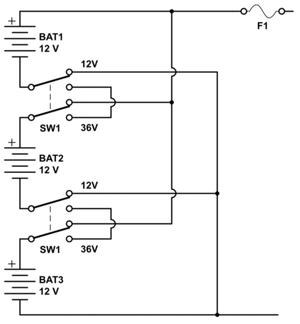A new pay-per-message model, currently under consideration by AOL and Yahoo, is meant to avert problems stemming from the flood of spam (junk e-mail) by requiring companies to pay for certified e-mail deliveries, in the same way they pay for certified snail mailings.
There’s only one problem: No one seems to believe the system will help to reduce the amount of spam, some critics think it might actually increase junk e-mail, and some are worried that it will set a dangerous precedent by creating two tiers of e-mail service.
What everyone agrees on, however, is that spam is a big problem. According to Postini, a provider of enterprise e-mail management software, over two-thirds (68.6 percent) of all Internet e-mail messages are now spam. And there’s currently no good solution to this mushrooming problem. Spam filters are, at best, imperfect, too often failing to keep junk mail out of users’ inboxes.
Worse still, such filters occasionally block legitimate mail. Not to mention the effort required to maintain a spam-filtering system, which costs Internet Service Providers (ISPs) time and money.
Enter Goodmail Systems, a provider of e-mail services to ISPs, including AOL. The company’s CertifiedEmail system creates a special class of certified messages that qualified — and paying — companies can send to their customers. These messages include unique cryptographic tokens, supplied by Goodmail, and they appear with a special “certified” icon in users’ inboxes. Both Yahoo and AOL have publicly stated their desire to implement its system — and AOL says it will do so within 30 days.
AOL insists that it will keep offering its free e-mail service indefinitely, that it will continue to aggressively filter spam, and that it will not demote noncertified messages to second-class status. It also plans to continue its existing Postmaster, Whitelist, and Enhanced Whitelist services, which help legitimate organizations send mail to AOL users at no charge. Furthermore, both AOL and Goodmail claim that they will not permit spammers to send certified messages, and that they’ll revoke certification from any company that abuses the system.
Goodmail is not the first company to propose a scheme requiring senders to pay for delivering messages. At the World Economic Forum in Davos, Switzerland in 2004, Microsoft chairman Bill Gates suggested that e-mail “postage” would eventually eliminate spam by reducing the economic incentive for spammers.
But pay-per-e-mail systems have not met with much success — and every time a new proposal for one has been floated, netizens have reacted with a sound and fury — as AOL found out last week.
A coalition of more than 50 nonprofits, led by the Electronic Frontier Foundation, has launched a campaign to stop the online giant from implementing its certified e-mail program, which, the nonprofits say, would amount to an “e-mail tax” that could stifle free speech online.
The campaign started on February 28 with an open letter to AOL, co-signed by such diverse organizations as MoveOn.org Civic Action, Gun Owners of America, and Craigslist. The letter claims that AOL’s plan to use Goodmail is “the first step down a slippery slope that will harm the Internet itself” by creating a two-tiered mail system, one for paying senders and one for non-paying senders — with a built-in incentive for AOL to shift senders from the latter class into the former.
“What worries us is that AOL is using the spam problem as a stick to encourage us to pay up,” says Danny O’Brien of the Internet watchdog organization Electronic Frontier Foundation. “It turns the Inbox into a cash box for AOL, instead of something to be protected.”
Goodmail and AOL have not said what they will charge companies for sending certified mail, other than to state that the fee will be based on the number of delivered messages. That’s what has nonprofits worried. Some, like MoveOn.org, send opt-in mail to millions of members, with as many as 25 percent being AOL users. The charges to certify delivery on that scale could be prohibitive for such cash-strapped organizations.
Telecommunications expert and Carnegie-Mellon professor David Farber, who runs the not-for-profit mailing list Interesting People, which covers issues of Internet governance and politics, is skeptical. “The difference between a spammer and a mass mailer gets very hazy, and I don’t think AOL is in the business of making that judgment,” he says. “I think you’ll wind up with a very pro forma response, which will be, ‘You pay us, and we’ll say you’re not a spammer until someone proves you are.’ It won’t cut down on the amount of spam I get — and it may increase it in the long run.”
Richi Jennings, an analyst at Ferris Research, a messaging market research company, says AOL’s economic self-interest dictates that it will continue to aggressively block spammers, whether or not they’re using certification. “AOL’s major revenue stream relies on subscribers,” says Jennings. “If an organization’s mail is generating a significant number of spam complaints, AOL will cease delivering mail from that organization — it’s that simple. Goodmail is nothing to do with reducing spam — it’s to do with outsourcing some of AOL’s Whitelist for senders who see value in paying.”
In other words, Goodmail is about as much of a threat to ordinary e-mail delivery as the U.S. Postal Service’s Certified Mail service is to the delivery of ordinary first-class mail. And it does about as much to combat junk e-mail — which is to say, nothing.
Link: You’ve Got PayMail
Link broken? Try the Wayback Machine.

